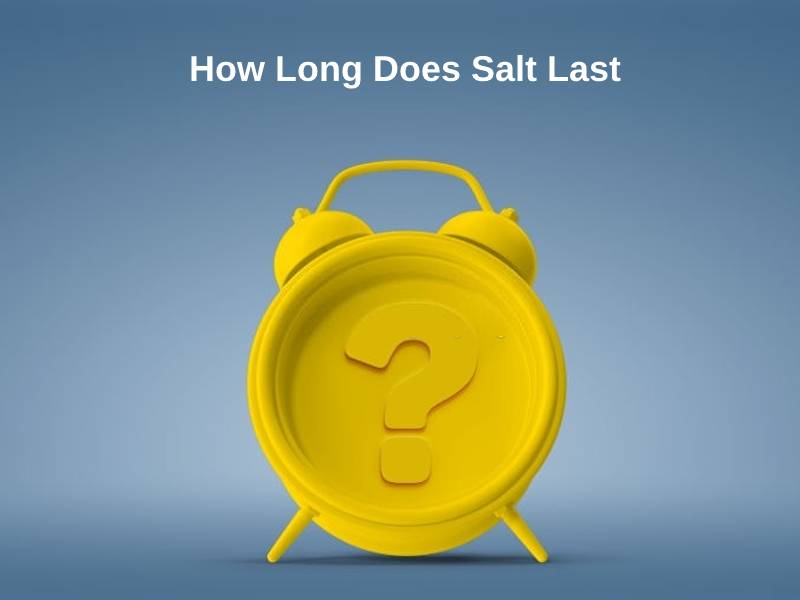Exact Answer: Eternity
Salt is one of those things that is always present in one’s house. Whether one wants to do baking or cooking, salt forms an unavoidable part. Every recipe calls for salt in one way the other. Aside from being inexpensive, it has a valuable place in almost all food items. The salt contains sodium which is responsible for maintaining the body’s fluid balance, transmitting nerve impulses, and the proper functioning of muscles.
It is almost impossible to imagine a diet without salt. Technically, pure salt does not expire, as it lacks moisture and antibacterial properties. However, this does not mean that all varieties of salt last forever. Table salt or iodized salt may contain some additives such as iodine among others that could potentially affect the overall shelf life of the salt, making its shelf life shorter.

How Long Does Salt Last?
| Types Of Salt | Duration |
| Celtic Salt | Lasts indefinitely |
| Table Salt | Up to 5 years |
| Pink Himalayan Salt | Lasts forever |
| Iodized Salt | Up to 5 years |
| Kosher Salt | Lasts indefinitely |
When a person buys a packet of salt, it is stamped with a best-by-date. As per salt manufactures, that is the date until which the salt is safe to be used and is at its peak efficiency, but that does not necessarily mean that after that date, the salt becomes bad.
Pure salt, also known as sodium chloride, is a natural element. It is a stable compound that does not spoil. Our body requires salt for proper functioning in small quantities. Mostly, salt is used to enhance the flavors of the food one is consuming. Thus, pure salt can last forever when stored properly. Pure salt comes in different varieties like sea salt, Himalayan salt, etc all lasting for eternity as long as they are stored correctly.
However, if salt is combined with other ingredients like herbs, seasoning, and additives, there is a tendency that it will lose its saltiness over time as the other ingredients such as plant products will degrade. As iodized salt is fortified with iodine, it is not pure salt and thus, it does not last forever. However, it can still last up to five years.
Why Does Salt Last So Long?
Salt like a lot of other spices may have a best before date, but it does not have an expiration date. The types of pure salt like sea salt, rock salt, Himalayan salt, last indefinitely and can be used for extended amounts of time.
As pure salt is a natural compound, it does not expire and can last for an eternity. It does not go bad if kept for longer durations. If it is stored properly, salt can potentially have an indefinite shelf-life.
However, this same thing cannot be said for all varieties of salt. Table salt, also known as iodized salt, is very refined. It is ground to a fine powder texture which helps in removing impurities from the salt. During this process, also some minerals or salt are removed. The iodine in table salt can impact the overall shelf life of the product and can cause the shelf life of iodized salt to be reduced.
Salt is used in cooking as well as in baking. One will find salt listed in ingredients in almost all recipes. A recipe without salt is surely a rarity. The best way to store salt is in its original air-tight container in a cool and dark place like the pantry. It should be kept dry at all times. It should be kept at a constant temperature away from the stove or dishwasher.
Conclusion
Salt has multiple uses. It is a food preservative that extends the foods’ shelf life by creating a conducive atmosphere. It is part of most curing and preservation process, including picking and fermentation. Salt absorbs moisture and dries the food out making it last long and good.
One must keep in mind that the date printed on salt packaging is not an expiration date It is a best-by date that companies have to place on the packaging. Most types of pure salt will remain good indefinitely while table salt may last only about 5 years. Thus, pure salts can last for an eternity but iodized salt cannot.
 Samantha Nicole
Samantha Nicole